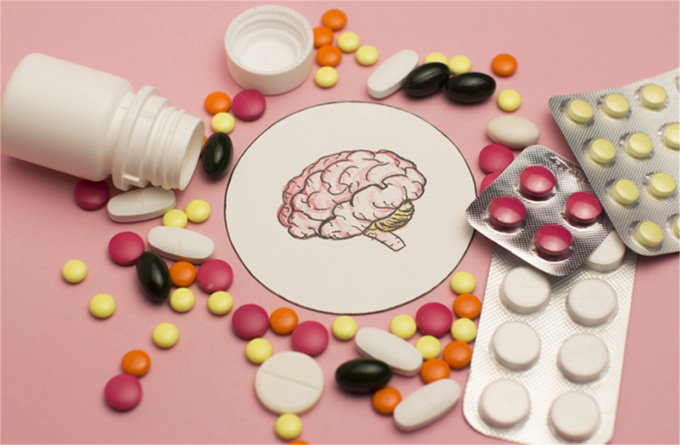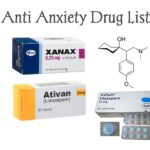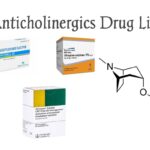List Of Psychotropic Drugs

A psychotropic drug refers to a drug that can affect behavior, mood, thoughts, perception, or mental status. It’s an umbrella term for a lot of different drugs, including prescription drugs and commonly misused drugs. The Substance Abuse and Mental Health Services Administration (SAMHSA) National Survey on Drug Use and Health data found that in 2018, 47 million adults over age 18 reported a mental health condition.
This is around 1 in 5 adults in the United States. More than 11 million reported serious mental illness.
How Psychotropic Medications Work
Many psychotropic medications work by adjusting the number of major chemicals in the brain. These chemicals are called neurotransmitters. Increasing or decreasing certain neurotransmitters can counter the effects of certain mental health disorders. Neurotransmitters are the messengers that allow your brain cells to communicate with one another. If you have weak or overactive neurotransmitters, they can produce unnecessary chemical reactions that lead to a mental health condition.
Psychotropic medications are not a cure. They can only treat mental health disorders, and they are sometimes most effective when combined with psychotherapy.
Types of Psychotropic Medications
There are five main types of psychotropic medications: antidepressants, anti-anxiety medications, stimulants, antipsychotics, and mood stabilizers.
Antidepressants are used to treat depression. There are different types of antidepressants. Some types are less frequently used than others but may work for you in consultation with your doctor. The most common antidepressants are:
• Selective serotonin reuptake inhibitors (SSRIs), which steadily increase the amount of serotonin in your brain. Serotonin is a powerful neurotransmitter that regulates your mood, bowel movements, sleep, blood clotting, and more.
• Selective norepinephrine reuptake inhibitors (SNRIs), which gradually increase the amount of norepinephrine in your brain. Norepinephrine makes you feel awake and alert.
• Bupropion, which promotes important brain activity and can be used to treat seasonal affective disorder (SAD) or to help people quit smoking.
Anti-anxiety medications treat an array of anxiety disorders. These medications can be used to treat panic attacks, phobias, generalized anxiety, and various anxiety-related symptoms. Anti-anxiety medications include beta-blockers that help treat the physical symptoms of anxiety, including increased heartbeat, nausea, sweating, and trembling.
Because they typically cause drowsiness, some tranquilizers and sleep medications are also used to treat anxiety and insomnia. These tend to be prescribed for only a short time to prevent anxiety.
Stimulants help manage unorganized behavior. They accomplish this by improving concentration and having a calming effect. Stimulants are often prescribed for people with attention deficit hyperactivity disorder (ADHD).
Antipsychotics help manage psychosis. Psychosis describes multiple conditions that affect the mind. They are often indicated by the person becoming separated from their reality and experiencing delusions or hallucinations. Antipsychotics can help people with psychosis think more clearly, feel calmer, sleep better, and communicate more effectively.
Mood stabilizers help regulate extreme emotions. This doesn’t mean they don’t let you feel all the good that life has to offer. They simply help you manage your range of emotions. Mood stabilizers are primarily used to treat bipolar disorder and extreme mood swings.
Full List Of Psychotropic Drugs
Commonly Prescribed Psychotropic Medications
| Antipsychotics (used in the treatment of schizophrenia and mania) | Anti-depressants | Anti-obsessive Agents |
| Typical Antipsychotics | Tricyclics | |
| Haldol (haloperidol) | *Anafranil (clomipramine) | Anafranil (clomipramine) |
| Loxitane (loxapine) | Asendin (amoxapine) | Luvox (fluvoxamine) |
| Mellaril (thioridazine) | Elavil (amitriptyline) | Paxil (paroxetine) |
| Moban (molindone) | Norpramin (desipramine) | Prozac (fluoxetine) |
| Navane (thiothixene) | Pamelor (nortriptyline) | Zoloft (sertraline) |
| Prolixin (fluphenazine) | Sinequan (doxepin) | |
| Serentil (mesoridazine) | Surmontil (trimipramine) | Antianxiety Agents |
| Stelazine (trifluoperazine) | Tofranil (imipramine) | Ativan (lorazepam) |
| Thorazine (chlorpromazine) | Vivactil (protiptyline) | BuSpar (buspirone) |
| Trilafon (perphenazine) | Centrax (prazepam) | |
| SSRIs | *Inderal (propranolol) | |
| Atypical Antipsychotics | Celexa (citalopram) | *Klonopin (clonazepam) |
| Abilify (aripiprazole) | Lexapro (escitalopram) | Lexapro (escitalopram) |
| Clozaril (clozapine) | *Luvox (fluvoxamine) | Librium (chlordiazepoxide) |
| Geodon (ziprasidone) | Paxil (paroxetine) | Serax (oxazepam) |
| Risperdal (risperidone) | Prozac (fluoxetine) | *Tenormin (atenolol) |
| Seroquel (quetiapine) | Zoloft (sertraline) | Tranxene (clorazepate) |
| Zyprexa (olanzapine) | Valium (diazepam) | |
| MAOIs | Xanax (alprazolam) | |
| Mood Stabilizers (used in the treatment of bipolar disorder) | Nardil (phenelzine) Parnate (tranylcypromine) | *Antidepressants, especially SSRIs, are also used in the treatment of anxiety. |
| Depakene (valproic acid) | ||
| Depakote | Others | Stimulants |
| Eskalith | Desyrel (trazadone) | (used in the |
| Lithobid (lithium) | Effexor (venlafaxine) | treatment of ADHD) |
| Lithonate | Remeron (mirtazapine) | Adderall (amphetamine |
| Lithotabs | Serzone (nefazodone) | and dextroamphetamine) |
| *Lamictal (lamotrigine) | Wellbutrin (bupropion) | Cylert (pemoline) |
| *Neurontin (gabapentin) | Dexedrine | |
| *Tegretol (carbamazepine) | Anti-Panic Agents | (dextroamphetamine) |
| *Topamax (topiramate) | Klonopin (clonazepam) | Ritalin (methylphenidate) |
| Paxil (paroxetine) | *Antidepressants with | |
| Xanax (alprazolam) | stimulant properties, | |
| Zoloft (sertraline) | such as Norpramin and | |
| *Antidepressants are also used in treatment of panic disorder. | Wellburtrin, are also used in the treatment of ADH |
Listed above are the brand names, followed by the generic in parenthesis. A second chart below provides cross-referencing by generic name.
*Although this medication has been approved by the FDA for the treatment of other disorders, it has not been approved for this particular use. Some evidence of this medication’s efficacy for such use does exist, however. This type of medication use is referred to as “off label.”
List of Psychotropic Substances
Examples of psychotropic substances include:
- Alcohol
- Caffeine
- Nicotine
- Marijuana
- Heroin
- LSD
- Cocaine
You may find useful information on: Do Psychiatric Drugs Cause Cancer?





